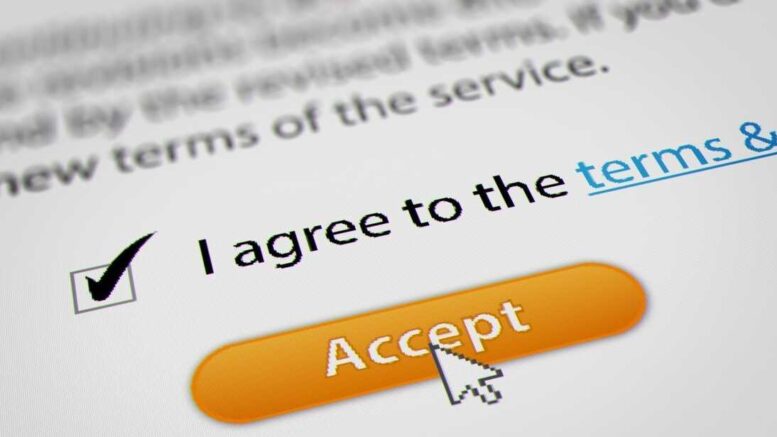You’ve scrolled through those endless terms and conditions, eyes glazing over, just to click “I Agree” and move on. But those walls of tiny text are corporate booby traps, hiding how websites snatch your data, sell it to shady buyers, or dodge lawsuits. It’s like those rapid-fire drug ads on TV—designed to confuse, not clarify. Let’s rip apart what these agreements really mean, expose their dirty tricks, and show you how to fight back.
Why Do Terms Allow Data Hoarding?
Websites use terms to justify tracking your every click—your searches, location, even that weird 2 a.m. purchase. They say it’s for “better services,” but it’s about selling your profile to advertisers for big bucks. Some user agreements permit “anonymized” data sharing with third parties, which often isn’t so anonymous. The Federal Trade Commission reports data brokers earn billions while you’re the product, all greenlit by those sneaky agreements.
Updated Terms: What’s the Catch?
Those “we updated our terms” emails aren’t just polite nudges. Companies sneak in new clauses, like sharing data with foreign firms or using it for AI training. LinkedIn, for instance, tucked AI data use into its updated agreements, hidden deep in the legalese. The Electronic Frontier Foundation says these changes often broaden data collection without clear alerts, banking on you ignoring the fine print.
Big Pharma’s Terms: Same Old Trick
Ever hear a drug ad speed-talk side effects like it’s a race? It’s the same game as website user agreements—bury the bad stuff. You skip the fine print on your meds, just like you breeze past online agreements. Both are legal shields, not helpful guides. The FDA notes these disclosures meet rules but overwhelm users, building trust through repetition, not honesty.
Dark Web Danger: Terms Enable Leaks
Loose terms can let your data slip to the dark web, where hackers sell medical records for $1,000 each. A 2025 Forbes report says healthcare data tops credit cards for identity theft. Vague terms allowing “partner” sharing or weak security fuel this black market. The Treasury Department’s sanctions on dark web markets like Nemesis highlight the global scale of this data disaster.
Disney’s Terms Dodge and Foreign Risks
Some terms are legal landmines. When a widow sued Disney over her husband’s death at Disney Springs, Disney claimed her Disney+ subscription terms blocked the lawsuit, forcing arbitration. The Florida Politics report on this outraged many, showing terms’ absurd reach. Foreign platforms like TikTok add risks, with terms allowing data storage in countries with lax privacy laws, raising red flags.
Fight the Terms: AI Tools and Advocacy
You’re not helpless! Push for shorter, clearer terms by backing groups like the Consumer Federation of America, which demand plain-language contracts. Use AI tools like Legaliser to analyze the agreement—just paste the URL, and it flags data grabs or shady clauses. Use Grok or ChatGPT to ask questions about conditions—just paste the entire T&C and ask it to explain the entire agreement like you’re a 3rd grader, and have a small conversation about it. Protect yourself with VPNs, ad blockers, and cookie opt-outs. Scrutinize foreign or new platforms’ terms before signing up to avoid traps.
Own Your Rights, Beat the Terms
We’ve been conditioned to skip the user agreements and trust websites, but that’s over. From Disney’s lawsuit dodge to dark web data sales, terms are corporate weapons. Fight back with AI tools, demand shorter agreements, and lock down your privacy. You’re not a pawn in their game.
So, how will you outsmart the next terms trap you face?
Like this article?
☕️ Share a coffee: https://buymeacoffee.com/criordan
👉 Follow me on X: @CRiordan2024
Click HERE to read more from Clara Dorrian.






